Understanding the Dynamics of Inadequacy
In the complex journey of addiction recovery, feelings of inadequacy often surface, presenting emotional hurdles that must be navigated to achieve successful sobriety. These feelings are not only common but can also be pivotal in driving self-reflection and personal growth if managed constructively. This article explores how individuals in recovery can manage feelings of inadequacy and enhance their emotional resilience by developing self-esteem, cultivating self-acceptance, and building strong support networks.
The Role of Self-Esteem and Social Support
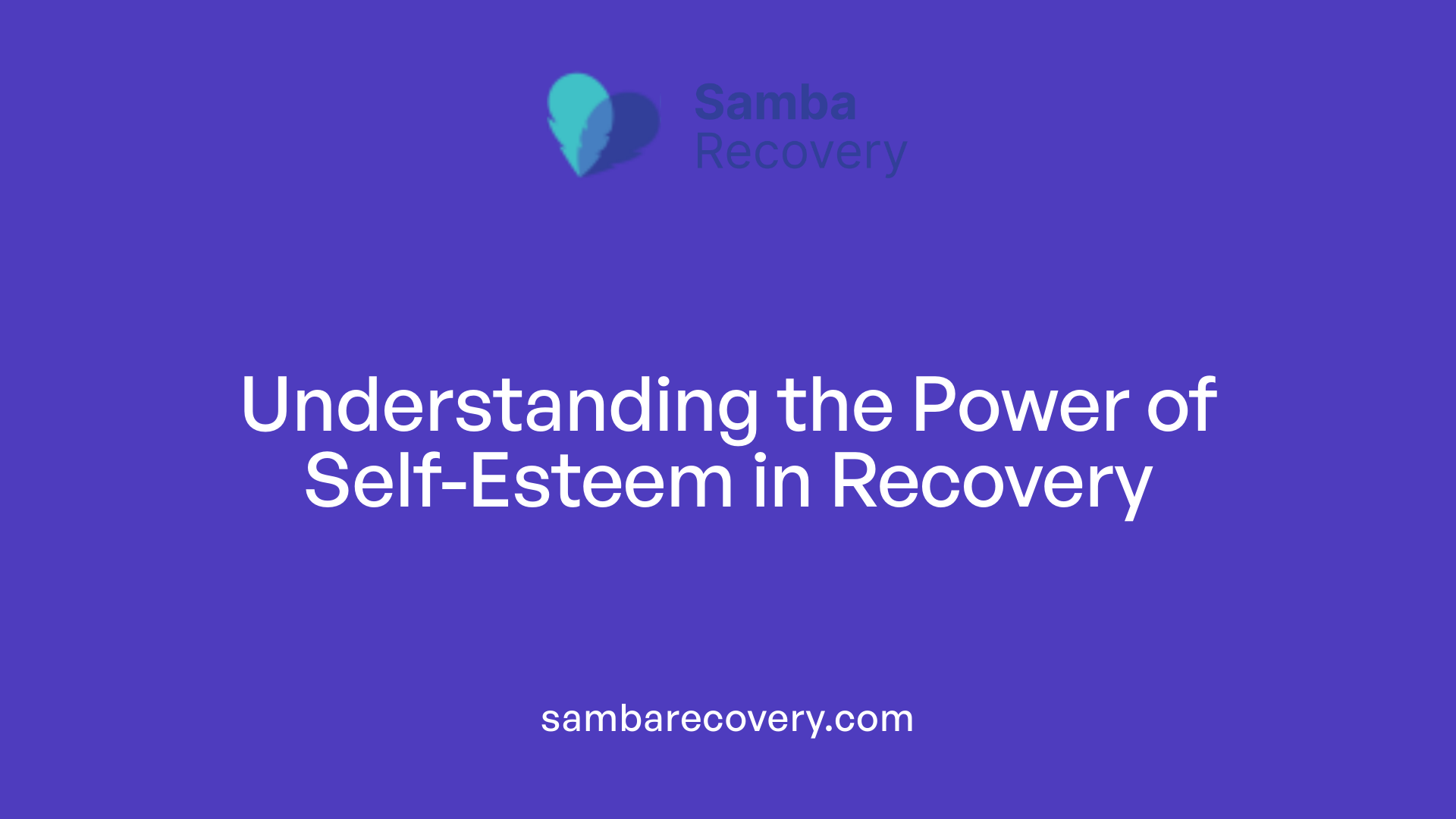
What is the role of self-esteem and social support in addiction recovery?
The role of self-esteem and social support in addiction recovery is critical, as both factors significantly influence treatment outcomes. Individuals recovering from addiction often confront feelings of inadequacy that can undermine their journey to sobriety. Low self-esteem typically arises from comparison with others, leading to a cycle of negative self-perception and increased reliance on substances.
Strong social support networks help individuals stay committed to recovery, reduce relapse rates, and enhance their readiness to change. Affiliating with support groups, such as Twelve Step programs, allows recovering individuals to share their experiences, which reduces self-judgment associated with feelings of inadequacy. Human connections foster acceptance of their identities as recovering addicts, crucial for emotional growth.
Strategies for enhancing self-esteem
Rebuilding self-esteem involves practical strategies such as:
- Setting Realistic Goals: Engaging in achievable activities, like joining a sports team, can help reshape one’s self-image away from comparisons with others.
- Positive Affirmations: Replacing negative thought patterns with positive affirmations is essential for dismantling limiting beliefs about inadequacy.
- Acknowledging and Sharing Feelings: Vocalizing feelings of inadequacy, shame, or guilt can facilitate healing and reduce the burden of these emotions. Journaling or discussing experiences with trusted individuals is beneficial.
- Forgiveness and Self-Compassion: Recognizing past mistakes as growth opportunities fosters self-acceptance and encourages a healthier self-relationship.
Overall, enhancing self-esteem alongside cultivating a supportive environment creates a strong foundation for lasting recovery.
Breaking the Cycle of Low Self-Esteem and Substance Use
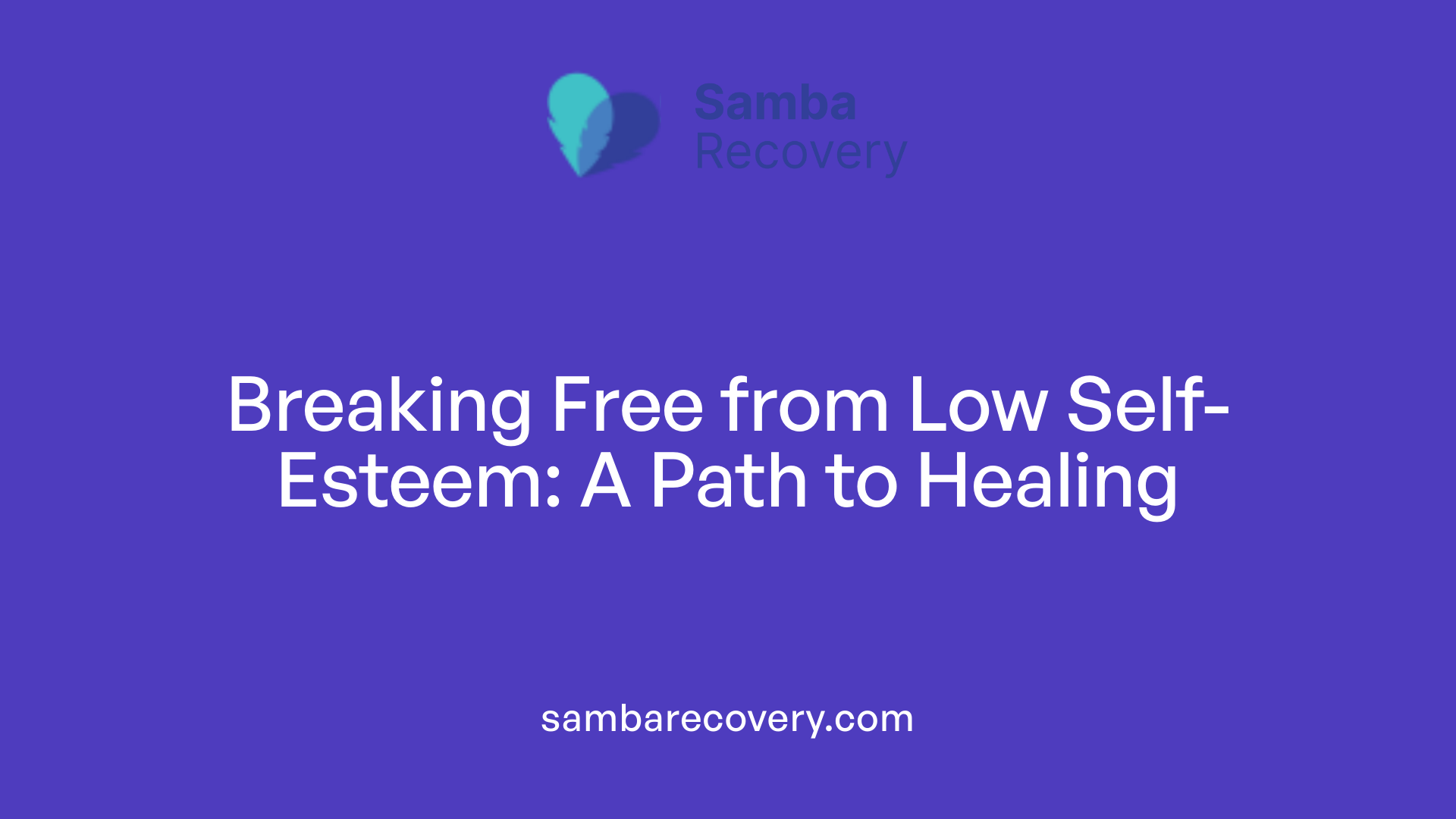
What is the relationship between low self-esteem and addiction recovery?
Low self-esteem and addiction recovery share a deeply intertwined relationship. Individuals who struggle with low self-worth often seek alternative coping mechanisms, including substance use. This reliance on substances can create a damaging cycle; as addiction progresses, feelings of inadequacy often intensify. These heightened feelings lead individuals to further substance use as a means of escape, exacerbating their low self-esteem and complicating recovery.
How does low self-esteem affect addiction recovery?
In the context of recovery, feelings of inadequacy can serve as significant barriers. Individuals may struggle to accept their identities as recovering addicts, perpetuating self-judgment and shame. Addressing these emotions is crucial; positive self-perception can significantly enhance resilience and motivate recovery efforts. Embracing strategies that improve self-worth, such as setting achievable goals or engaging in community support, can foster emotional growth and mitigate feelings of inadequacy.
What role do therapy and self-care play?
Therapeutic interventions, including cognitive-behavioral therapy (CBT), have proven effective in addressing negative thought patterns linked to low self-esteem. CBT helps individuals challenge their limiting beliefs and replace them with healthier perspectives. Additionally, self-care practices—such as engaging in physical activities—bolster self-esteem and encourage a more positive self-image.
Furthermore, community support, like that found in Twelve Step programs, encourages individuals to share their experiences, fostering a sense of belonging that enhances emotional well-being. Self-forgiveness and the cultivation of empathy towards oneself can also pave the way for healing, allowing individuals to break free from the grips of low self-esteem and addiction.
| Aspect | Connection | Impact |
|---|---|---|
| Low self-esteem | Coping mechanism | Increased risk of substance use |
| Emotional barriers in recovery | Self-judgment | Hinders emotional growth |
| Therapeutic interventions | Behavioral change | Enhances self-perception and recovery |
| Community support | Reduces isolation | Improves emotional resilience |
| Self-care practices | Boosts self-esteem | Fosters a positive self-image |
This holistic approach, addressing both mental and emotional aspects, is essential in guiding individuals towards healthier lifestyles and reducing relapse risk.
Embracing Emotional Support and Self-Acceptance
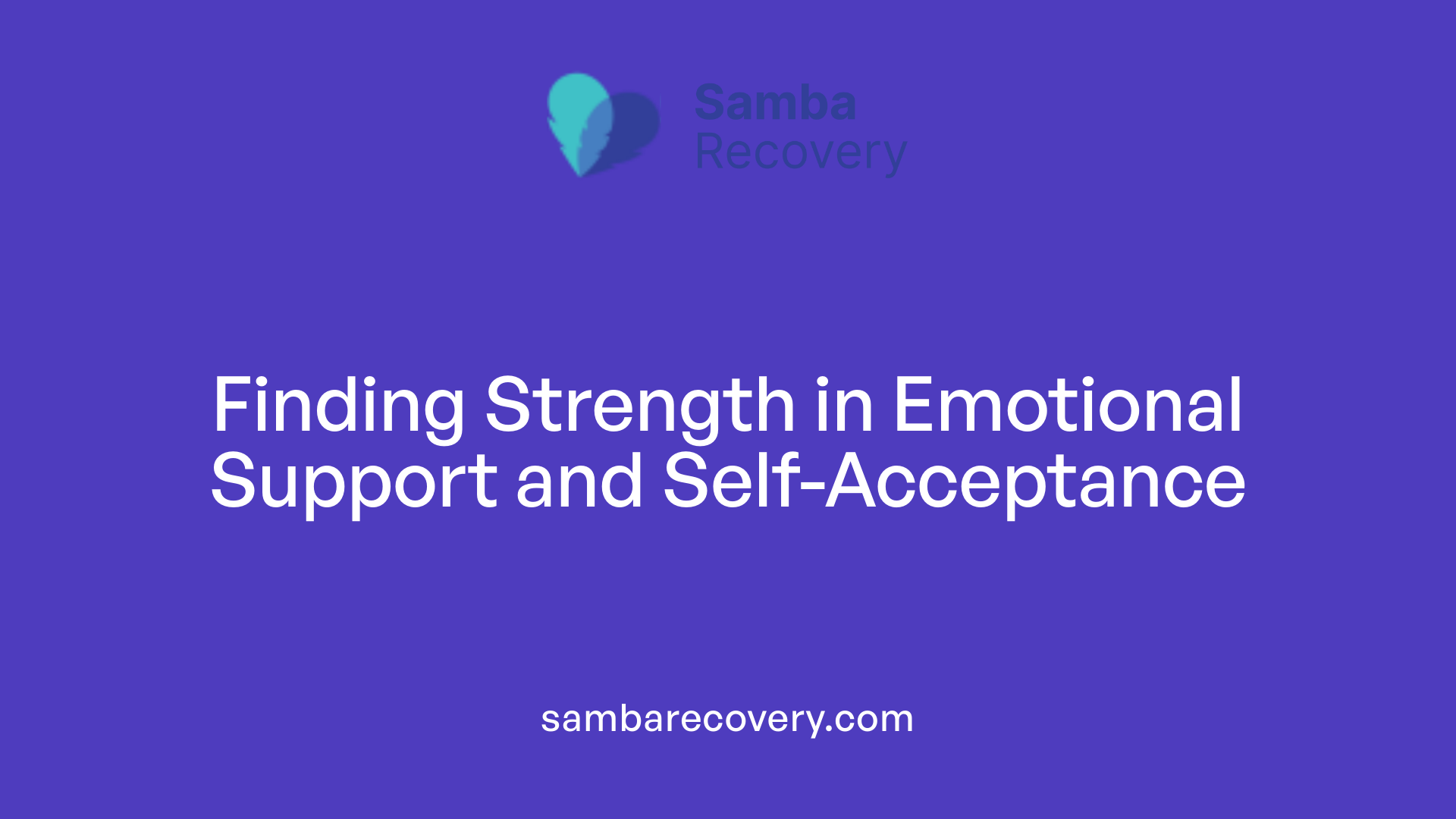
How can I find emotional support and establish self-acceptance during recovery?
Finding emotional support and establishing self-acceptance during recovery begins with building a robust support system. This can include friends, family, or peer groups, particularly those involved in Twelve Step programs, which provide environments conducive to sharing experiences and reducing self-judgment.
Engagement in therapeutic practices like Cognitive-Behavioral Therapy (CBT) or Dialectical Behavior Therapy (DBT) can prove beneficial. These therapies help individuals tackle negative thought patterns and enhance emotional regulation, both of which are crucial for rebuilding self-esteem.
Integrating self-care routines into daily life also plays a significant role. Practices such as mindfulness and physical activities not only contribute to improved emotional well-being but also help reshape an individual’s sense of self-worth away from harmful comparisons.
Setting small, achievable goals allows individuals to recognize their progress and fosters an appreciation for personal growth. Recognizing that recovery can be a journey filled with setbacks and triumphs is vital. Embracing this journey means allowing oneself to experience, share, and confront feelings of inadequacy, which can facilitate deeper understanding and healing.
Self-forgiveness and gratitude practices are essential in shifting focus from negative experiences to positive aspects of life. By nurturing these practices, individuals will enhance their emotional resilience, ultimately aiding in their journey of self-acceptance and recovery.
| Support Elements | Purpose | Expected Outcomes |
|---|---|---|
| Strong support system | Provides encouragement and reduces shame | Increased emotional stability |
| Therapeutic practices | Addresses negative thought patterns | Improved emotional regulation and self-acceptance |
| Mindfulness routines | Enhances self-awareness | Greater overall well-being |
| Small goal-setting | Builds self-efficacy and awareness of progress | Increased self-esteem |
| Self-forgiveness | Allows for letting go of past mistakes | Enhanced emotional resilience |
| Gratitude practices | Shifts perspective towards positivity | Improved overall mental health |
Embracing these strategies nurtures emotional support and self-acceptance during the journey of recovery.
Practical Approaches to Overcome Inadequacy
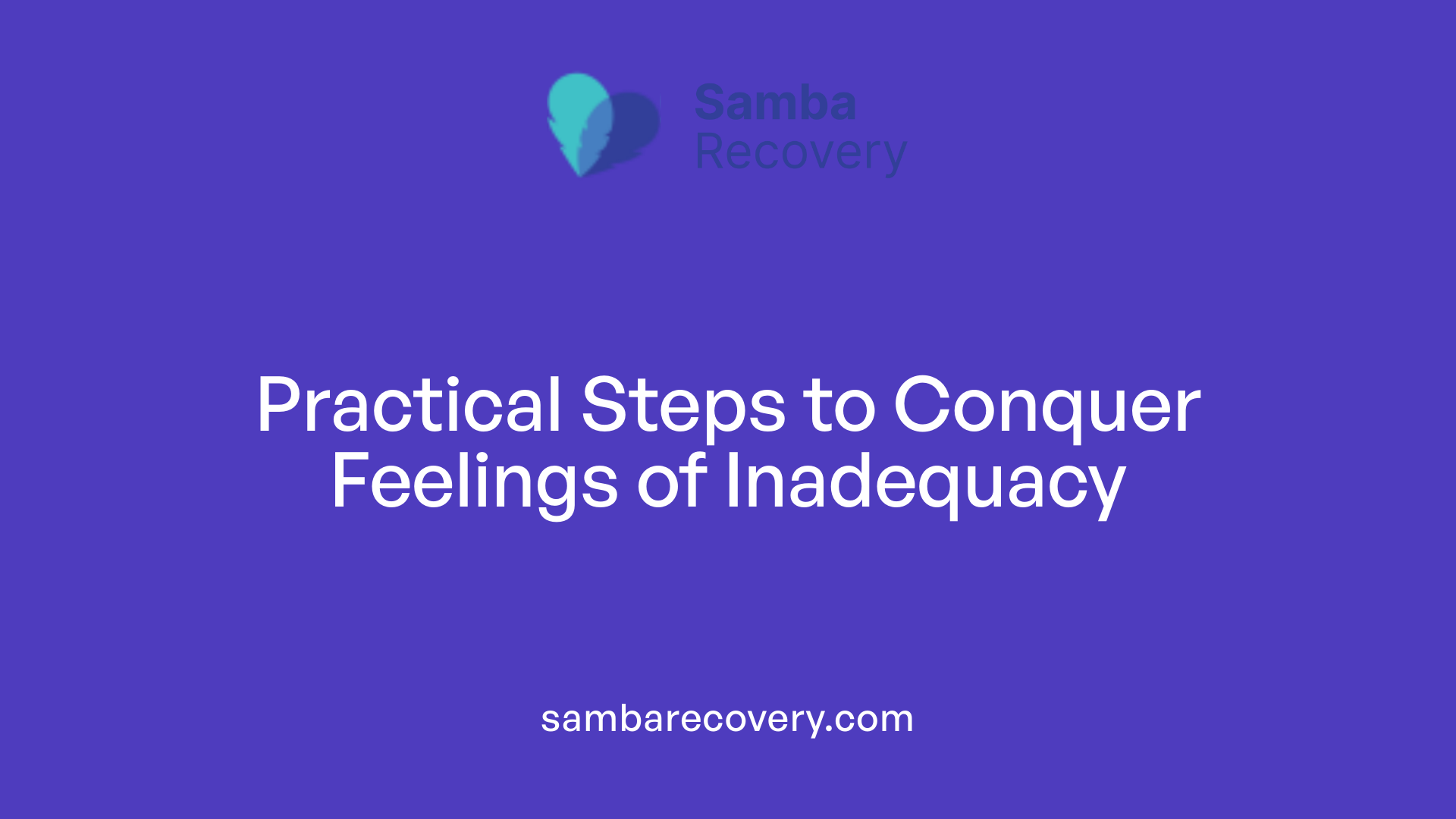
What are practical steps to deal with overwhelming feelings of inadequacy?
Overcoming feelings of inadequacy involves several steps:
-
Challenge Negative Thoughts: Address and counter unhelpful thoughts that can exaggerate feelings of inadequacy. This can include questioning the validity of these thoughts and replacing them with positive affirmations.
-
Limit Social Media Comparison: Minimize exposure to social media, which can fuel unhealthy comparisons. Redirecting focus to personal achievements can reduce feelings of inadequacy.
-
Foster Social Connections: Build relationships with supportive individuals who encourage your growth. Reaching out to friends or joining community support groups can foster a sense of belonging and acceptance.
-
Engage in Activities That Bring You Joy: Participate in activities that make you happy and build self-worth. Physical activities, hobbies, or new interests are excellent choices for boosting self-esteem.
-
Practice Self-Compassion: Cultivate self-kindness and understanding instead of harsh self-criticism. Recognizing that everyone experiences feelings of inadequacy can help normalize these emotions and encourage a gentler self-view.
These practical approaches can help individuals process their feelings and develop a healthier self-image.
Navigating and Transforming Shame
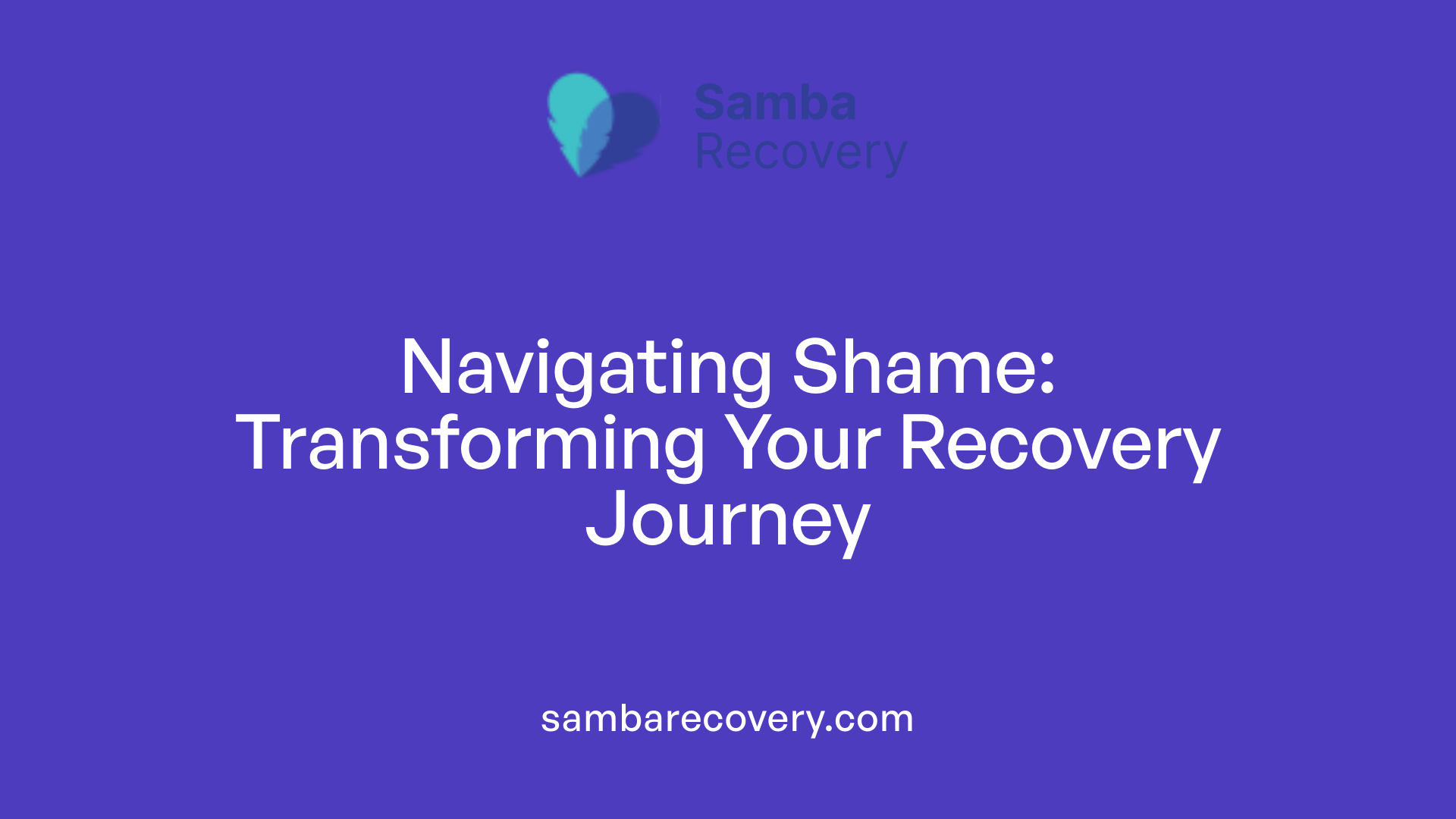
How can one navigate feelings of shame during recovery?
Navigating feelings of shame during recovery is essential, as it can significantly hinder the process of healing. It’s important to address shame’s emotional roots through various therapeutic approaches. For instance, Cognitive-Behavioral Therapy (CBT) and Dialectical Behavior Therapy (DBT) focus on helping individuals challenge and reshape negative self-beliefs that contribute to feelings of inadequacy.
Group therapy also plays a vital role in this process. It creates a supportive environment where individuals can share their experiences, fostering connections that alleviate feelings of isolation. By connecting with others who have faced similar struggles, participants can counteract shame and reinforce a positive self-narrative, enhancing their sense of belonging.
Furthermore, cultivating self-compassion is crucial. Individuals are encouraged to embrace vulnerability, recognizing that it’s a part of the human experience. This shift not only helps in managing shame but also facilitates a more constructive path towards recovery and personal growth.
Moving Forward with Confidence
Feelings of inadequacy are natural during recovery but need not dictate the path forward. By focusing on rebuilding self-esteem, establishing robust support networks, and embracing self-compassion, individuals can redefine their narratives and move toward a promising future. With proactive strategies and a commitment to personal growth, it is possible to transcend inadequacy and attain a fulfilling and meaningful recovery trajectory.
References
- Feeling Inadequate? – Addictions UK
- Five Ways to Recover from Shame and Inadequacy
- How Do I Stop Feeling Like I’m Not Good Enough?
- Developing a Latent Coping Resources Factor for Recovery from …
- Managing shame and guilt in addiction: A pathway to recovery
- Shame: The Feeling That Holds Us Back in Recovery
- How Low Self-Esteem Can Lead to Substance Abuse | Gateway
- How To Rise Above The Feeling That You’re Inadequate – BetterHelp






